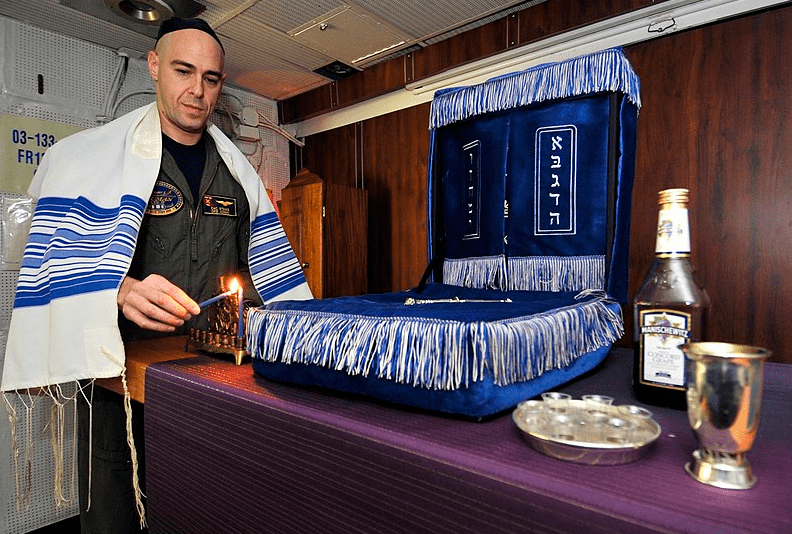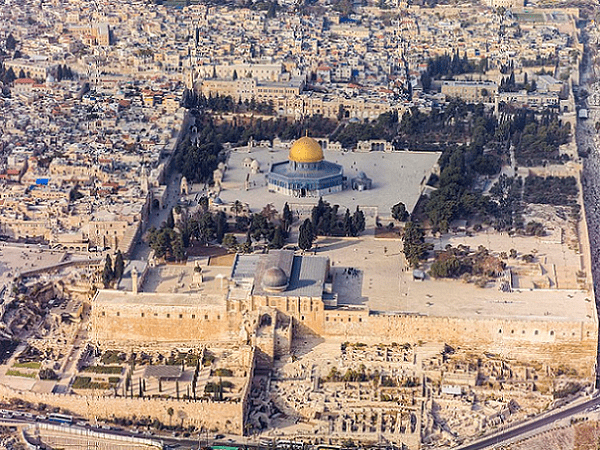In 1654 the first Jewish settlers arrived in what is now known as New York City, looking for new opportunities – including the freedom to openly practice their faith. Jewish people have been calling the United States home for several centuries, doing just that: establishing cultural and religious institutions, and influencing the way American society as a whole developed.
Seeing as they wouldn’t have a state to call their own until 1948, and would have to endure much hardship in the meantime, forming pockets of tight-knit Jewish communities in the United States seemed like a beautiful thing – and it was.
That strong sense of unity cultivated an inspiring, thriving environment that made people feel confident in sharing their culture with others, adding aspects of the Jewish community to American society.

Jewish Contributions to Society in the 20th Century
There was “an almost hundred-fold increase in America’s Jewish population” during the 19th century, according to the Library of Congress, leading to an even larger influx at the turn of the 20th century. In 1880 there were 300,000 American Jews in total – by 1924, an additional 2.5 million Eastern European Jewish migrants had settled in the United States.
With such a massive increase in population, Jewish communities began to truly take shape, with the established settlers taking the new immigrants under their wing. Together, this strong and enthusiastic Jewish American community began putting their touch on society.
Jewish Contribution to American Art
In America, some of the greatest Jewish contributions come from the art world, influencing three major types of art:
- Performing arts
- Visual arts
- Literary arts
Performing Arts
It’s believed that Broadway musicals were a Jewish creation, with Jewish American composers connecting the traditional klezmer music, the proto-jazz sound of Yiddish theatre, with musical showtunes. Not only were Broadway shows created that drew on Jewish themes, such as Cabaret and Fiddler on the Roof, but many shows written by Jewish composers drew on Christian themes too, like White Christmas and Easter Parade, fostering a sense of inclusivity in performing arts.
Beyond the creation of Broadway musicals, an incredibly impressive feat, another lesser-known but equally important Jewish contribution was to the dance world, especially the dancer and choreographer Pearl Lang.
As a creative mind during the Great Depression in Chicago, Pearl Lang began making a name for herself, later moving to New York City to work with Martha Graham – often considered to be the “Mother of Modern Dance.” After dancing with the world-famous Martha Graham Dance Company for 30 years, Lang formed the Pearl Lang Dance Theater, centering the majority of her work on Jewish themes.
Visual and Literary Arts
Judy Chicago, one of the leading artists of the Feminist Art Movement, is experimental when it comes to color and aesthetics, but her main guiding principles remain: addressing power and gender, and environmental degradation.
While the generations before her parents were strongly religious, Chicago’s parents chose to live secularly. Many people didn’t know this phenomenal icon of women’s art and empowerment was Jewish until she produced The Holocaust Project: From Darkness into Light, a collaboration with photographer Donald Woodman, who also happens to be her husband.
While it may not be high art, Milton Glaser’s work is easily known by every person on Earth. The prolific graphic designer was the creative force behind the “I Love NY”campaign that came to represent the state of New York. Glaser also co-founded Push Pin Graphics magazine, a somewhat counterculture publication that rejected popular styles and leaned toward blending historical references with illustration and vintage typography. He later entered mainstream publishing and co-founded New York Magazine.
Political Engagement
Passionate politics is a Jewish contribution to the world that is undeniable, and was exemplified in 20th century America by exercising influence in the Democratic Party. By the middle of the century, Jews became involved in fighting for civil rights, and Jewish organizations like the Anti-Defamation League helped protect the First Amendment’s commitment to the separation of church and state.
As Jewish people identified with the most liberal of causes, they became, at the end of the century, the most reliable Democratic voters besides African Americans, according to The Chronicle Review.
Find Culturally-Specific Records with GenealogyBank
In 2019, there were an estimated 7.5 million Jewish people in America, making the United States home to the largest population of Jewish people in the world, according to the Jewish Telegraphic Agency. But it wasn’t always this way. The true population growth didn’t happen until the 20th century, meaning that the Jewish contributions we’re familiar with are almost certainly not all of them.
If you’re Jewish, or have Jewish family, you can use archival records like Jewish American newspapers to explore your family’s history and learn how your culture has contributed to American society. With its historical newspapers, census records, digitized books, and government records, GenealogyBank, a leading genealogy resource, can connect you with the valuable documents you need to learn about your ancestors’ lives and their impact on your world today.
Sources:
- Library of Congress: From Haven to Home: 350 Years of Jewish Life in America.
- Jewish Telegraphic Agency: America’s 7.5 million Jews are older, whiter, and more liberal than the country as a whole.
Related Articles:
